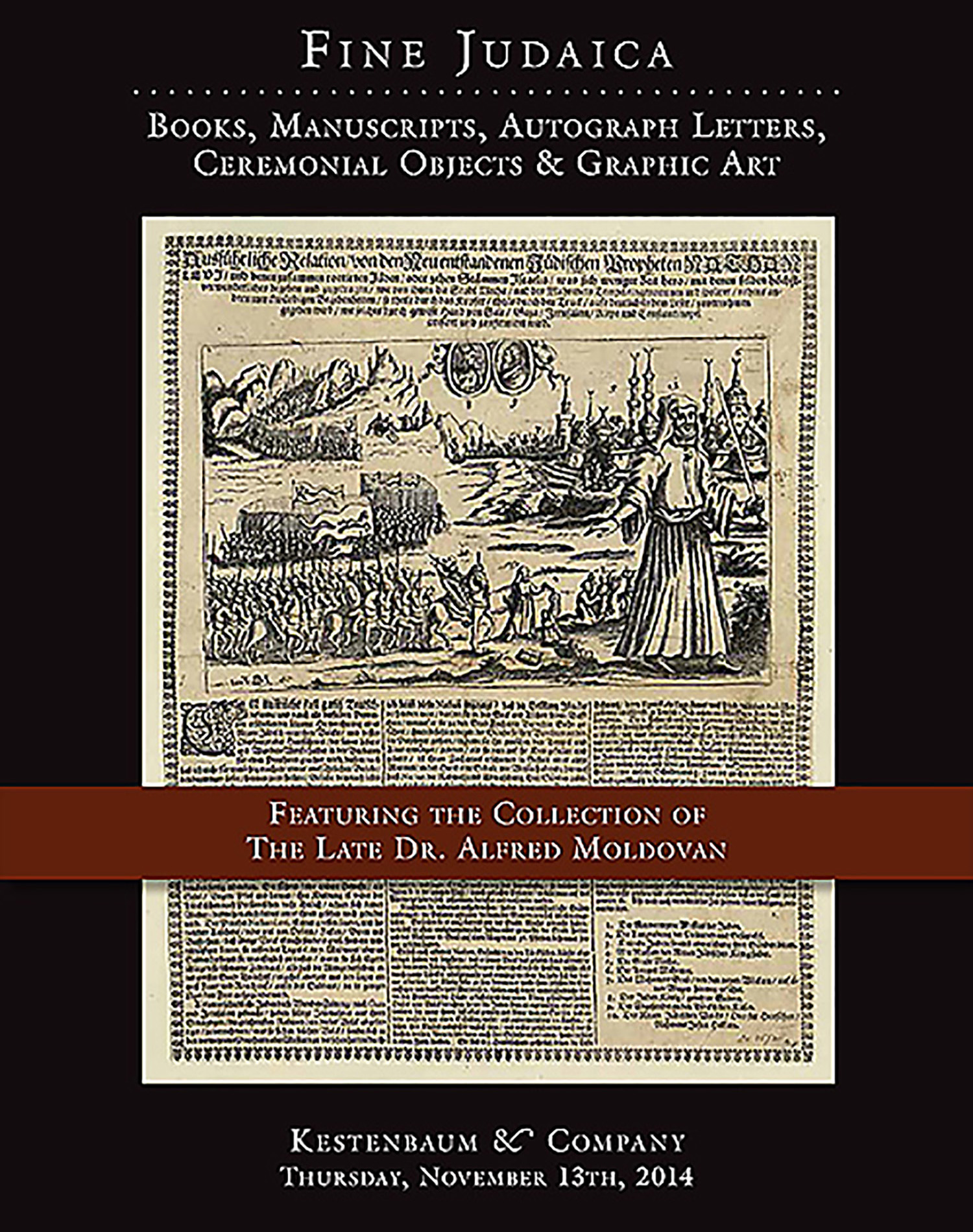Pentateuch: Genesis (second half) and Exodus (first half), with Babylonian Complex Vocalization and some Tiberian Vocalization.

AUCTION 63 |
Thursday, November 13th,
2014 at 1:00
Fine Judaica: Books, Manuscripts, Autograph Letters, Graphic and Ceremonial Art
Lot 279
(BUKHARIAN BIBLE).
Pentateuch: Genesis (second half) and Exodus (first half), with Babylonian Complex Vocalization and some Tiberian Vocalization.
Bukhara: Second half of 15th-century
Est: $60,000 - $80,000
<<The present Bukharan manuscript is of the utmost rarity and importance.>>
Very few medieval Bukharan Hebrew manuscripts have survived (all from the second half of the fifteenth century), and only one of them is a Pentateuch manuscript. This manuscript therefore is one of only two surviving medieval Bukharan Pentateuch manuscripts. Furthermore, it is <<the only surviving medieval Bukharan manuscript containing the second half of Genesis and the first half of Exodus>> (with some material missing in each part). Upon detailed examination (research material supplied) it is evident that this manuscript represents and preserves an older, alternate Pentateuch tradition concerning the text (mostly in plene-defective spellings); the division of the sections; and the layout of the Song of the Sea. Thus it is singularly able to supply insight as to the traditions of the Pentateuch in Medieval Bukhara.
<<PALAEOGRAPHY:>> Unique features in the present manuscript are found in the following two manuscripts: MS Ramat-Gan, Bar-Ilan University 1004 (Moussaieff 130); MS New York
